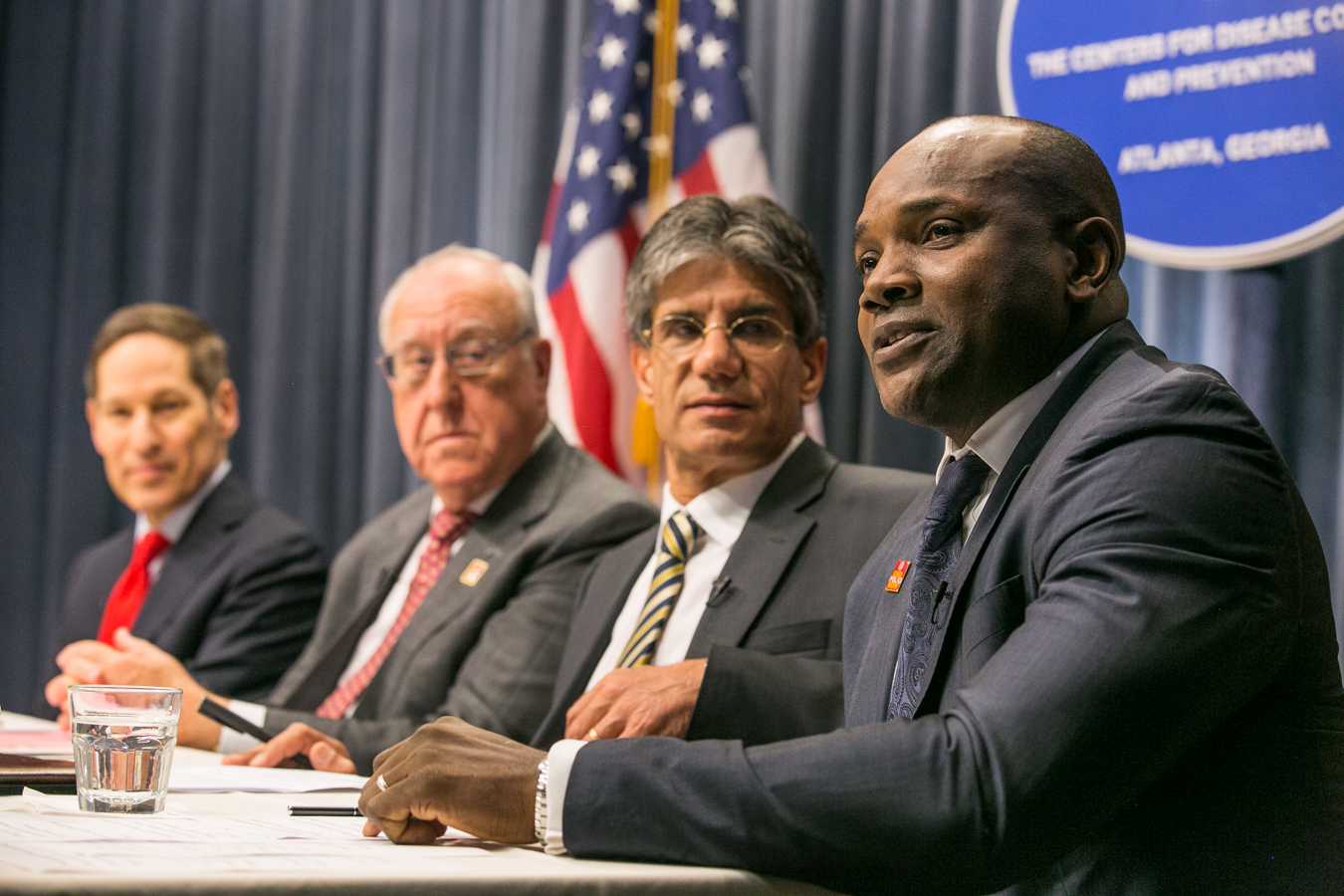
Dennis Ogbe, born in Nigeria, lost the use of his legs in 1994, when he was only 3. He was sick with malaria so he was sent to a hospital for treatment, but while he was there, he contracted polio too. The malaria went away; the polio and the paralysis that followed never did.
Children, being children, took little pity on him. When he was a bit older and wheelchair-bound, he wrestled his way to a sports field where his schoolmates were playing soccer. When they saw him, they fled to higher ground, leaving him behind. “They would take my crutches away and say, ‘Dennis, if you can take one step, you can play with us,'” he says. “So I did. And then they would say, ‘Dennis, if you can take two steps, you can play with us.'”
He did that too, and then took a lot more steps. Ogbe is now an American citizen and a paralympian, competing in shot put, discus and javelin. He is also a spokesman and advocate for the Global Polio Eradication Initiative, a joint effort by the Centers for Disease Control, Rotary International, the Bill and Melinda Gates Foundation, the World Health Organization and UNICEF, to wipe out polio for good.
Today, representatives from all of those groups and more gathered at the Centers for Disease Control and Prevention (CDC) in Atlanta, for World Polio Day. For the healthcare community and policymakers worldwide, the hope is always that any one year’s World Polio Day will be the last World Polio Day, and the goal is coming tantalizingly close.
In 1988, polio was endemic in 125 countries and crippled or killed 350,000 children each year. In 2016 so far, there have been just 27 cases, and the disease has been confined to three countries—Pakistan, Afghanistan and Nigeria.
“The virus is actually cornered,” said Reza Houssani, UNICEF’s Director of Polio Eradication, at a CDC press conference this afternoon. “After stalking the world for generations, polio is almost defeated.”
Nigeria had been polio free for two years—meaning the entire African continent was clear of the disease too—but in July, four cases turned up in Borno state, an area controlled by Boko Haram, where vaccinations had not taken place in three years. Warfare and extremism have also been responsible for the stubborn persistence of polio in Afghanistan and Pakistan, where the Taliban have made it difficult—and often deadly—for field workers to reach the children who need the vaccine.
Local military forces can help take back contested areas or at least broker ceasefires to let vaccinators in. In Nigeria, safe passage corridors have been created to allow families out of Borno. In Pakistan and Nigeria, mothers and grandmothers play a big role too, getting their children to vaccination centers and providing a certain moral throw weight behind the vaccination drives. Even the Taliban have been open to negotiations, hoping to prove that they have the basic wherewithal to administer a state—or at least the territory they control. They may or may not have anywhere near that ability, but their mere attempt to prove themselves is benefiting local children.
“There is a shrinking number of inaccessible areas,” said CDC Director Tom Frieden in a conversation with TIME. “In Pakistan especially there are encouraging signs. The surveillance indicators are strong.” In Afghanistan, the challenge is often mere geography, with the sparseness of the population making it hard for any one vaccinator to reach terribly many children.
Nigeria, meantime, is in triage mode. The four new cases sparked an immediate response, with a five-round vaccination effort now underway, in an attempt to reach 41 million children not only in Nigeria, but in four other countries in and around the Lake Chad region—Niger, Chad, Cameroon and the Central African Republic. Once that’s done, it’s all about about watching. “We stop, listen and look,” says Frieden, “and try to gather data.”
It says something about the challenge of battling any disease that the vaccine firepower brought against an outbreak can seem so disparate—41 million inoculations in response to four cases. But disease eradication is an entirely binary game—one case, given enough time, is as good as one million cases. We’re much closer to that one case of polio than we are to that one million. It is only the final jump to zero, however, that will mean the war is won.
More Must-Reads From TIME
- The 100 Most Influential People of 2024
- Coco Gauff Is Playing for Herself Now
- Scenes From Pro-Palestinian Encampments Across U.S. Universities
- 6 Compliments That Land Every Time
- If You're Dating Right Now , You're Brave: Column
- The AI That Could Heal a Divided Internet
- Fallout Is a Brilliant Model for the Future of Video Game Adaptations
- Want Weekly Recs on What to Watch, Read, and More? Sign Up for Worth Your Time
Write to Jeff Kluger / Atlanta at jeffrey.kluger@time.com